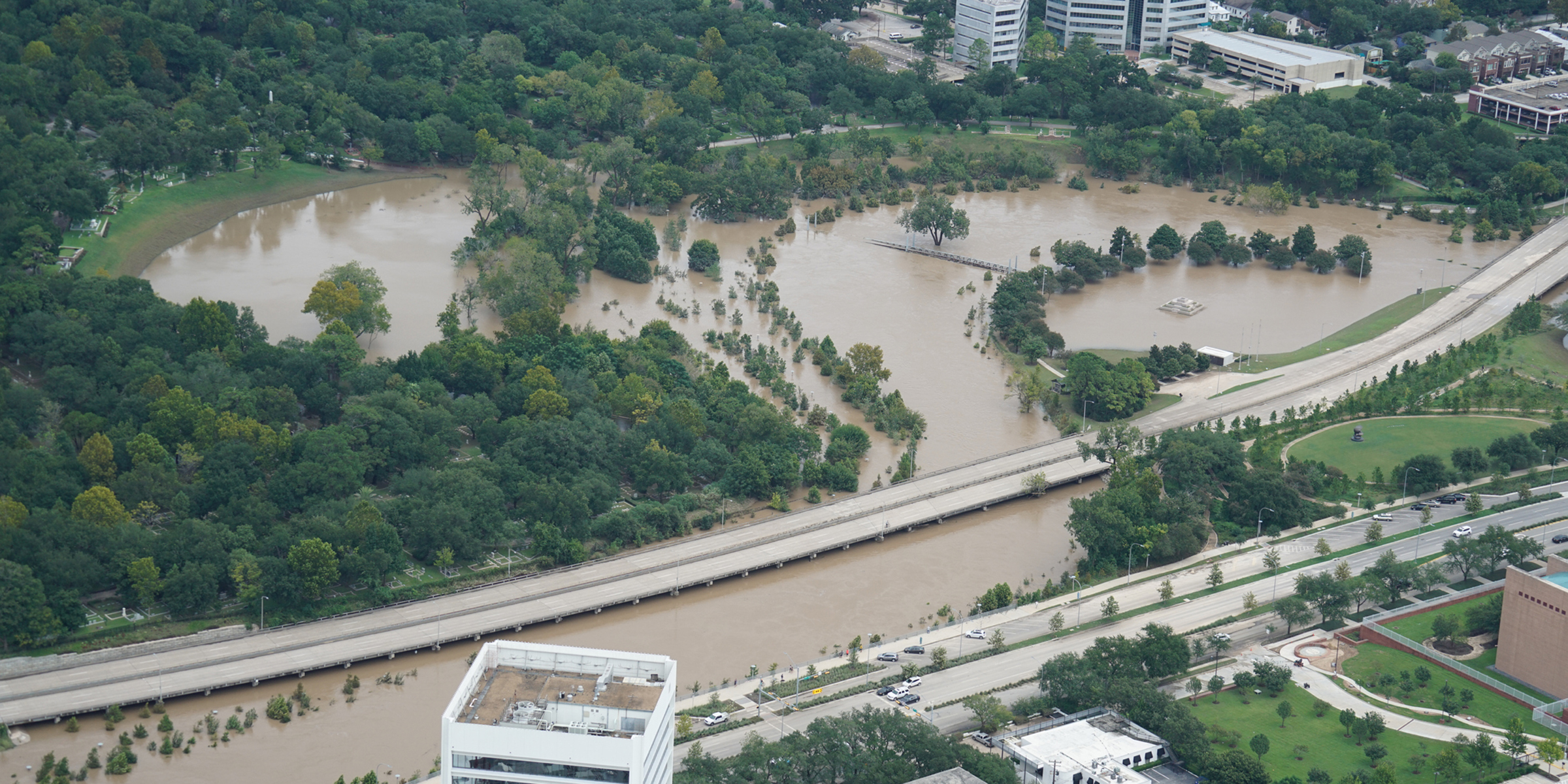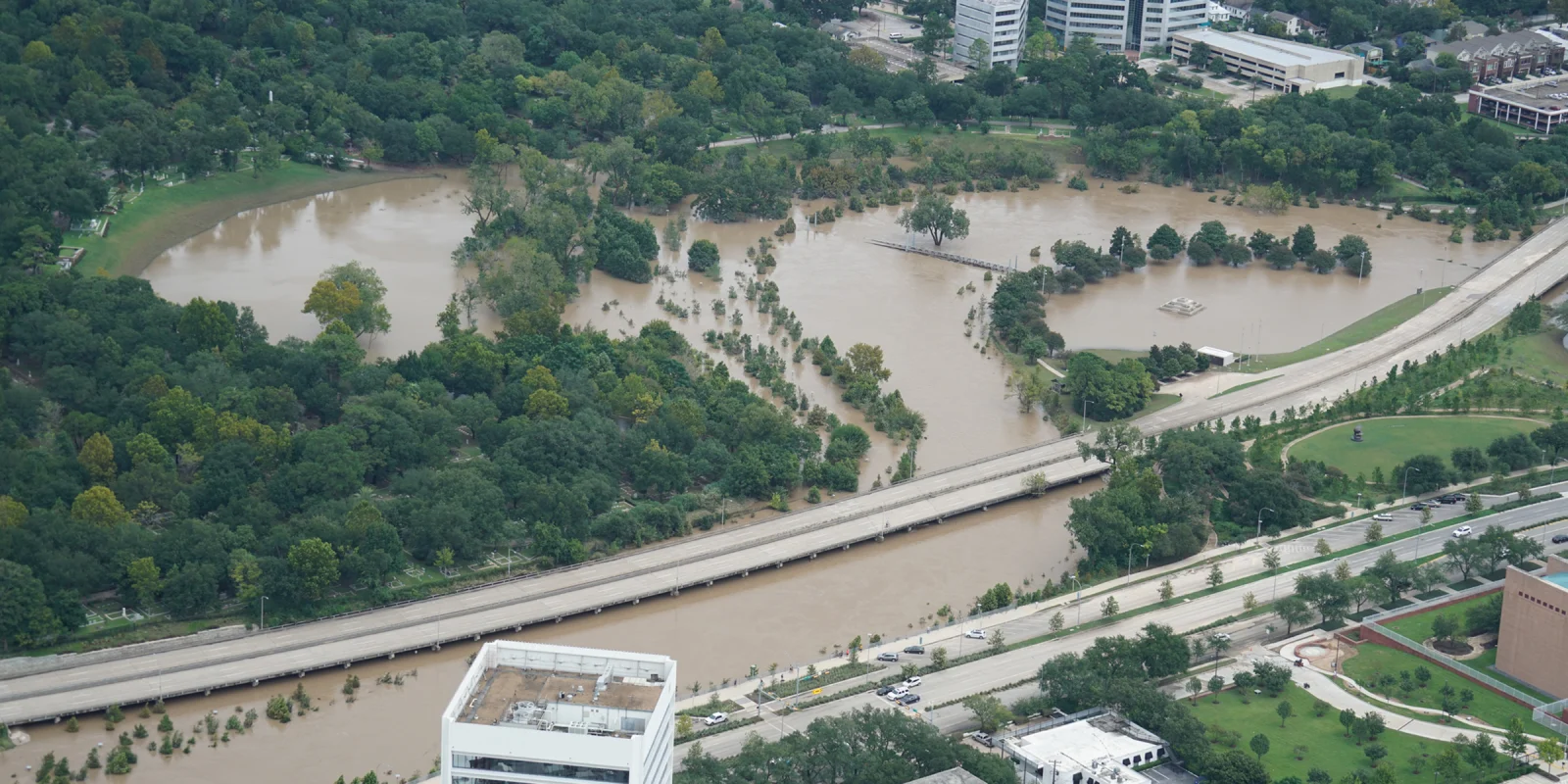
The hurricane made landfall during the early morning hours. When I woke up, all I saw was devastation. Highway 288 had transformed into a lake. The bayou running underneath had flooded, with water spilling into the roads. The park, a place where I go to find solace every day, was unrecognizable. People had abandoned their vehicles; I could see them all submerged. The garage floor was underwater, and the roads that lead to and from my apartment were not traversable.
I told myself something else was wrong, and it took me a minute to figure out what it was. Silence ensued. My fridge stopped humming. The highway sounds that comforted me during the night were nonexistent. The roaring of ambulances passing by my place to the medical center was gone. There was no more rain and no more wind, but I knew those two elements would eventually come back and not leave the city alone.
When I walked downstairs, no one believed what we were seeing. Few of us spoke; none of us pulled out our phones to record the water. We stood there, silent, as the river rushed through the street. I heard an older man start to cry. I walked over and embraced him.
After the hurricane made landfall, the governor of Texas deployed the entire national guard to help, but this effort wasn't enough. We needed the help of the whole country and every capable civilian to push through this tragedy, to rebuild. The hurricane had caused a catastrophe. It had displaced thousands of people from their homes and inflicted over $125 billion in damage, leading to over 100 confirmed deaths.
It's been nearly three years since Hurricane Harvey devastated my city of Houston. If another hurricane were to come through the Gulf of Mexico during the ensuing coronavirus pandemic, the consequences would be dire. Would our ICUs surpass capacity at that point? As of the end of June, all ICU beds in the Texas Medical Center were occupied, and with countless people continuing to disregard social-distancing and mask-wearing guidelines, a tropical storm or hurricane could devastate our health care system.
News of an impending hurricane would trigger mass panic, akin to when the pandemic started, with people storming grocery stores and pharmacies for necessities. People might use this as an excuse not to practice social distancing, and more hospitalizations would result from this conscious choice. Mass testing centers would close down, and untold numbers of people would be infected. If history tells us anything, a significant influx of sick and injured people always follows the path of natural disasters.
We have yet to find a cure or vaccine for COVID-19, so how exactly could my city and others in Louisiana, Florida, and states across the East Coast be expected to fight off both a pandemic and a hurricane? This hurricane season could be the worst on record, and some cities have yet to experience their outbreak peaks. Houston is fast approaching this flash point, or maybe it is already there.
As human beings, altruism is an innate quality that makes us act in the most selfless ways in times of catastrophe. This summer will require altruism even from people who have never volunteered to step up and help. We need businesses and companies with the capital, human resources, and influence to assist with city, state, and nationwide efforts to ensure that we are as prepared as possible for a worst-case scenario hurricane during the pandemic.
More importantly, however, are the two things that our health care officials keep on emphasizing: social distancing and mask wearing. Social distancing worked to flatten the curve, and subsequent mandatory mask wearing improved this statistic in several cities nationwide. I believe no one can argue that this correlation is not a fact. If we do nothing else when a hurricane comes, we must start caring for the health and the lives of those around us. We alone can prevent the surges in our ERs and ICUs and stop preventable COVID-19 deaths.
In harsh hindsight, we were grossly unprepared for COVID-19. We can likewise choose to panic when we hear of an incoming hurricane. We can choose to react and respond irrationally when a hurricane hits our shores. We can choose to forego social distancing and mask wearing because we feel these two things are a gross inconvenience.
Or we can prepare and educate ourselves on what's happening by following the news. We can respond by exchanging political differences for common sense logic. And most of all, we can start caring for our family, friends, and neighbors by having hurricane-preparedness plans in place, masks at hand, and by acting on the knowledge that being in crowded places increases risk of infection.
Hurricane season started weeks ago, and if most of the public continues to refuse to practice social distancing and mask wearing, health care systems across multiple cities will be overwhelmed. Do we want more of what happened in New York City, or will we do something about it?
Ton La, Jr. is a sixth-year MD/JD/LLM candidate at Baylor College of Medicine and the University of Houston Law Center, who is applying to internal medicine residency programs for the fall of 2021. He was a 2019-2020 Doximity Op-Med Fellow and is a former guest writer for KevinMD.com and The New Physician Magazine.
Click here to see more perspectives on COVID-19 from the Doximity network.
Click here for up-to-date news about COVID-19 on Doximity.







